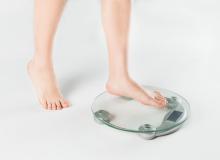"I have been strictly guarding against high blood sugar. Unexpectedly, if I was not careful, I almost died from hypoglycemia." Regarding the dangers of high blood sugar, everyone should be able to tell you a lot. People with diabetes are more aware of it and take it very seriously. . In contrast, not enough is known about the serious dangers of hypoglycemia.
In fact, hypoglycemia is no less harmful than hyperglycemia, and sometimes even more rapid and dangerous. There is a saying: "If the harm of high blood sugar is calculated in years, the harm of hypoglycemia is calculated in seconds."
Mild hypoglycemia may cause hunger, dizziness, palpitations, and hand tremors. Severe hypoglycemia may cause brain dysfunction, leading to confusion, strange speech and behavior, drowsiness, and convulsions.
If you faint and no one is around when hypoglycemia occurs, the consequences are really unimaginable.
1. What is hypoglycemia?
For non-diabetics, the diagnostic criteria for hypoglycemia are blood glucose < 2.8mmol/L;
For people with diabetes who receive medication, as long as their blood sugar is ≤3.9mmol/L, they fall into the category of hypoglycemia.
2. What are the symptoms of hypoglycemia?
3. Dangers of hypoglycemia
If a hypoglycemic coma lasts for more than 6 hours, brain cells will be severely and irreversibly damaged, leading to dementia or death.
A severe episode of hypoglycemia or a resulting cardiovascular event may negate any previous benefits of maintaining blood glucose within the normal range.
4. Why does hypoglycemia occur?
If hypoglycemia occurs, you need to think about the following aspects to find out the reasons before determining a preventive strategy:
[1] Eating too little or not eating at all;
[2] Occurrence during or after exercise may be caused by failure to reduce the insulin dose before exercise or failure to replenish sugary foods in time;
[3] After drinking;
[4] Diarrhea, stomach cramps, and food not fully digested and absorbed after eating;
[5] The dose of medication is not adjusted in time when the stress state improves: Since you are no longer working under high stress, the need for insulin will be reduced, and during the recovery period from trauma or surgery, the need for insulin will also be reduced;
[6] In case of drug overdose, the dose of oral hypoglycemic drugs or insulin needs to be reduced;
[7] After weight loss, the insulin dose needs to be reduced in time;
[8] After injecting insulin before meals or taking medicine, you forget to eat, or your meal time is delayed;
This involves a question of the onset time of insulin. Ultra-short-acting insulin takes effect in 15 minutes
When many people with diabetes eat out, they may take insulin after ordering food. However, if the food is served and the insulin starts to take effect, hypoglycemia may occur, so everyone still needs to grasp the timing of meals and insulin injections~
[9] When taking a hot bath or sauna, the blood flow speed increases, which may advance the peak of insulin absorption, causing a rapid drop in blood sugar and resulting in a hypoglycemic reaction.
5. What should I do if hypoglycemia occurs?
So if hypoglycemia occurs, how can I deal with it? It's actually very simple, just remember 3 "15"
Step 1: Eat 15-20g of glucose or other fat-free carbohydrates
Step 2: Wait 15 minutes and monitor blood sugar again
Step 3: If the blood sugar level has not reached normal, eat another 15-20g of glucose or other fat-free carbohydrates.
6. How to prevent hypoglycemia?
[1] Insist on measuring blood sugar every day. Only by monitoring blood sugar can hypoglycemia or already low blood sugar be discovered;
[2] Eat in time after taking oral medicine or injecting insulin;
[3] Learn how to adjust doses of oral medications and insulin;
[4] Test blood sugar frequently before, during and after exercise, increase sugar and reduce the dose of oral medication or insulin according to the amount of exercise;
[5] Appropriately increase carbohydrate foods or eat during and after strenuous exercise;
[6] Avoid drinking alcohol on an empty stomach;
[7] People with diabetes who often suffer from hypoglycemia should raise their blood sugar control goals to a safe range;
[8] Carry a card made with a copy of your ID card with you. The card should have the following items:
① Possible situations and symptoms
②Family contact number
③Emergency treatment methods after the situation occurs
④The hospital where you have been treated for a long time and the name of the doctor you contacted
⑤Family contact information
In this way, when hypoglycemia occurs, people around can contact the patient's family and family at any time through the card. At the same time, they can also strive to send the patient to the hospital as soon as possible and take timely and symptomatic treatment.
[9] Carrying sugary foods with you when you go out, such as glucose tablets or a few candies, can sometimes provide first aid.

